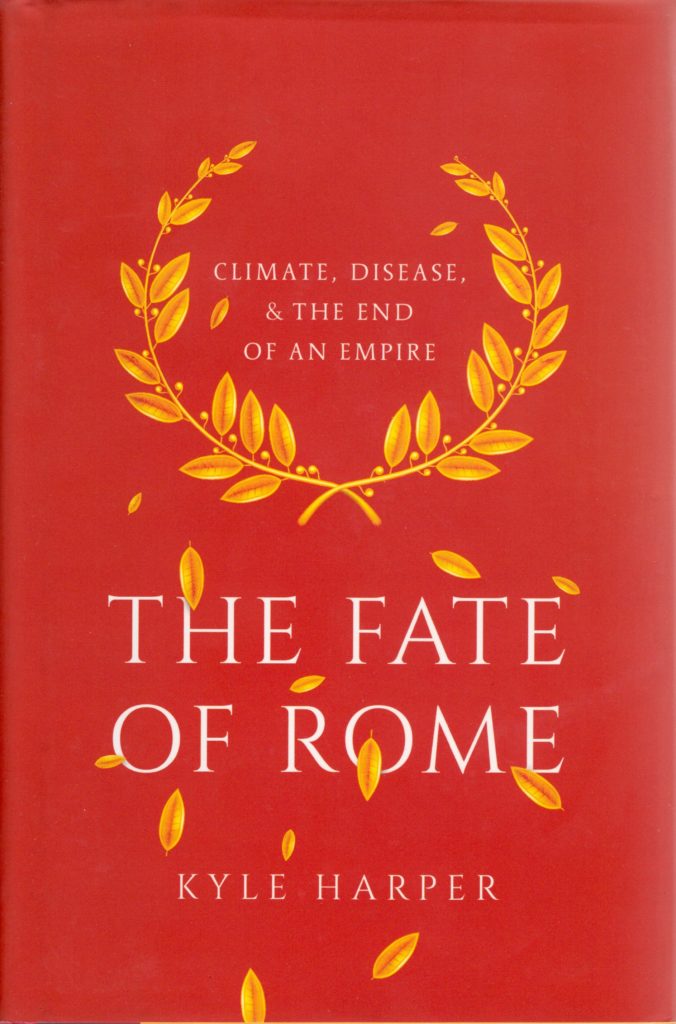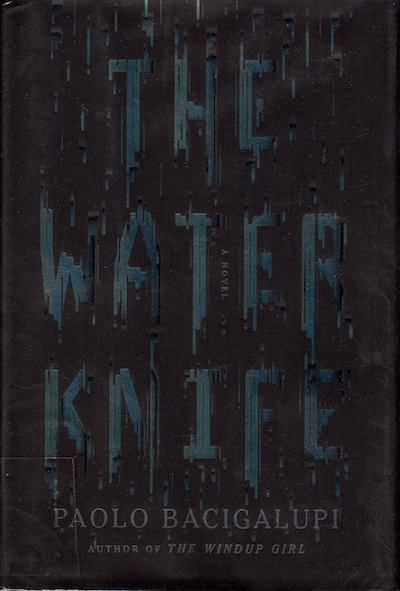
I found The Fate of Rome SUPER fascinating. And I’m usually not into the whole Rome-is-dying-lets-find-out-why genre of Roman History. (I prefer stories about people doing their jobs well rather than people screwing up.) But The Fate of Rome applies all kinds of updated scientific techniques to history, telling a story of disease and climate change affecting the Roman Empire, and how competent (or not) rulers played into that.
There are two parts that really stick in my brain.
First, there’s a thing in Roman History called The Crisis of the Second Century. Basically after Commodus (the emperor portrayed in Gladiator), the Roman Empire kind of falls apart. The usually theories that are put forth are around inflation and rulers who don’t get the trust of the military (both of which were problems, don’t get me wrong). There’s a whole line of study that tries to answer the question, “Why didn’t the Empire fall apart during the second century? Because it maybe should have.”
BUT, there is new analysis of the epidemic that hit the Roman Empire during the second century, with a truly appalling death rate of somewhere around 60%. The Antonine plague, as it’s known, has been discussed plenty. It’s typically identified as a type of smallpox. There was a plague about 100 years later that has never been identified, and it is usually assumed to be another wave of smallpox. However, using modern epidemiology & pathology techniques and Galen’s discussion of the symptoms, it seems way more likely to be a type of ebola. Both diseases have truly appalling death rates: 30-40% for smallpox, possibly as high as 70% for ebola. Either way, the combination of plagues had a HUGE destabilizing effect on society.
The second part that really sticks in my brain requires a slightly longer explanation. By the 500s, the Roman Empire had been split into two and the Western half had fallen. The Eastern Half, now known as the Byzantine Empire, was still around. The emperors would occasionally try to reincorporate the Western Half, but would usually not make it very far.
Until Justinian, who was a super-capable human being. He had a general he could trust and who succeed in starting to bring Italy back into the fold during the 530s. And then 536 hit. No one knows why, but 536AD is the coldest year in the last 2000 years. Core ice from glaciers and tree-ring evidence show that there was a HUGE volcanic explosion in 536 and another in 539. This coupled with lower solar activity during the time (measured by the amount of certain radioactive elements in the air caused by solar radiation that then precipitate onto the glaciers), was hugely devastating. No sun means no crops means no food. Combine that with a conquering army sweeping across your land? Disaster.
Suffice it to say, Justinian didn’t succeed in rejuvenating the Western Roman Empire.
I learned SO MUCH about both how to combine history and science reading The Fate of Rome and so much more about why the Western Roman Empire fell. If you are at all into history, I highly recommend it.


